Industry News
Nationwide Produce and Three Musketeers are donating 50p from every box of mint potatoes to support the Poppy Appeal
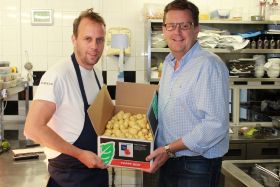
Nationwide Produce and Suffolk potato grower Three Musketeers will donate 50p to The Royal British Legion from every box of mint salad potatoes they sell during the three-week appeal.
After Edward Blanchard from Three Musketeers, and Nationwide’s Tim O’Malley, were moved by visiting Ypres, they decided to replace the mint leaf on packaging with a poppy in aid of the charity.
Backed by Michelin-starred chef Mark Poynton, the ‘Poppy Boxes’ went on sale on Wednesday 21 October at wholesalers and foodservice firms. O’Malley said: “This is a unique opportunity for buyers to support the Poppy Appeal while also backing British farming.
“We’re only five days into this promotion and the uplift in sales would already indicate that the amount we will raise for the Poppy Appeal will be closer to £15,000 than our original estimate of £10,000. The general reaction to this promotion from our customers has been very positive.”
Blanchard said it is “a great honour to help remember those that shouldn’t be forgotten” and asked the produce industry to support the initiative. “Chefs and buyers throughout the country, you can help us to raise some much-needed funds. Simply buy a product you already enjoy or swap from your usual supply and order a ‘Poppy Box’ of our Mint salad potatoes for the first time,” he said.
The National Pig Association (NPA) has praised supermarkets, including Lidl, for giving over more shelf space to British pork
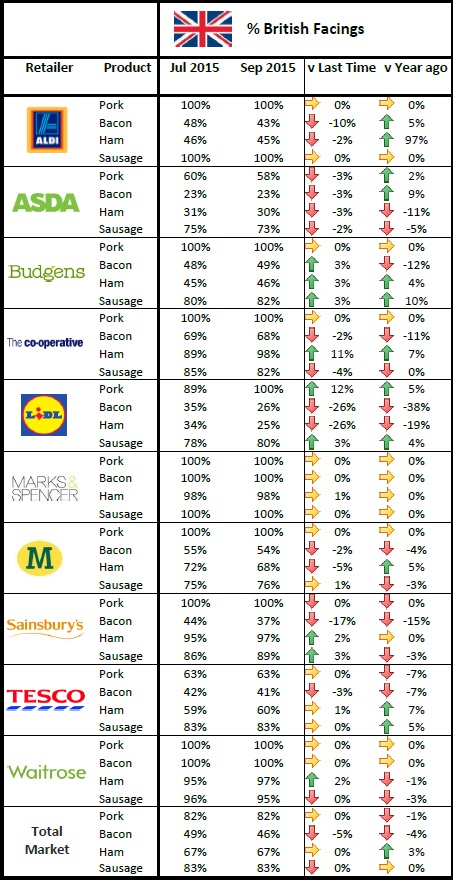
According to the latest Porkwatch survey from AHDB Pork for September, 100% of pork sold by Lidl was British.
The discounter joins the likes of: Aldi, Budgens, Co-op, M&S, Morrisons, Sainsbury’s and Waitrose in stocking 100% British pork. Asda and Tesco were reported to have 58% and 63% of facings that were British, respectively.
“We’re delighted with this news and hope Lidl will demonstrate over the months ahead that it isn’t a flash in the pan,” said NPA chairman Richard Lister.
Chief executive Dr Zoe Davies added that supermarkets needed to support the British pork industry and that it would continue to endorse those that do.
She said: “If retailers and foodservice want the convenience of a thriving British pig sector on their doorstep, producing reliable supplies of a quality-assured, traceable, high-welfare product, then it’s essential they make a special effort to source British pork, sausages, bacon and ham over the difficult months ahead.
“We’re carrying on with our Keep It Up campaign, which commends those retailers who have stood by their post-Horsegate pledges to source more British pork.”
According to the NPA, producers are no longer breaking even as a result of falling prices over the past year. The Standard Pig Price has dropped from 151p this time a year ago to 128p this week, while the break-even point is 139p.
Sierra Exportadora urges more producers to get involved in lucrative export industry
Peruvian blueberry exports are expected to grow to US$70m in 2015 according to government agency Sierra Exportadora. Chief executive Alfonso Velasquez Tuesta said Peru would close the year with a planted area of 2,800ha.
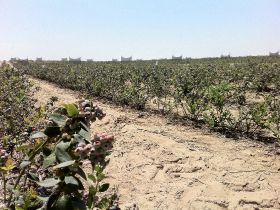
“From zero exports in 2009 to US$30m in 2014, Peru has climbed up the world rankings and is now the tenth biggest exporter of blueberries,” Velasquez said.
The projection is based on the continued strong growth in planted area, an increase in average yields from 8 tonnes to 10 tonnes and the growing number of young plants reaching maturity.
Velasquez noted that if more small producers joined forces to create farms of 25-30ha this would result in a big jump in the country’s blueberry export volume.
The US is the biggest market for fresh blueberries, importing around US$600m last year. This was followed by the UK with US$197m, then Canada and the Netherlands in third and fourth place.
“Peru should be aiming to fill the September-October window between the North American production, season which begins to wind down in August, and the start of the Chilean season in November,” Velasquez said.
On average, Peru produces 10-15 tonnes of blueberries per hectare. Velasquez claimed that since each hectare of production required an investment of US$40,000-US$45,000 and a yield of just 5 tonnes sold at US$10 per kg would generate an income of US$50,000, growers would already cover their start-up costs in one year.
More growth for discount retailers, but Sainsbury’s was the only ‘big four’ retailer to post sales growth over the last month, Kantar data shows
Lidl has achieved a new record share of the UK grocery market.
This is the second successive month Lidl has reached a new share high, and now claims 4.3% of the market, after seeing its growth accelerating to 17.9% in the 3 months to 11 October 2015.
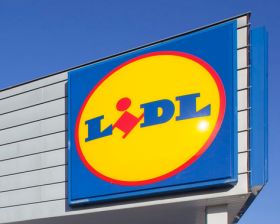
The discount retailer’s growth was particularly strong in Scotland, the scene of its ‘smarter shopping’ card trial.
The latest Kantar Worldpanel data also shows that Aldi saw its revenues rocket by 17.6% compared to last year’s figures.
Sainsbury’s was the only one of the larger supermarkets to see sales growth this period, and a strong performance in its online and c-store channels helped it to increase revenues by 1.1%.
However, Sainsbury’s market share was static at 16.1%.
Sales fell at Tesco by 1.7%, though it is too early to see the impact of its revamped ‘Brand Guarantee’ initiative. At Asda, sales fell by three per cent, bringing its market share down by 0.7 percentage points to 16.6%.
Meanwhile, sales at Morrisons fell by one per cent, taking its grocery market share to 10.8%
Fraser McKevitt, of Kantar Worldpanel, said: “In contrast to the overall market, online grocery sales have increased by 9.8% on last year. Despite this rapid expansion, space for retailers to increase both share and revenue in this area remains, with less than a fifth of households currently shopping online.
“Internet sales offer a chance of long term growth – only 18% of households bought groceries online in the last 12 weeks meaning there’s plenty of space for further expansion. The convenience factor and minimum spend restrictions mean online baskets tend to be larger, averaging £67 in value, compared with £14 for the average bricks and mortar trip.
“Amazon Fresh’s expected full launch early next year could be a major disruptor, bringing down average basket sizes, accommodating on demand shopping, and accelerating the growth of the whole online market.”
There has been further success this period for Waitrose, with sales up by 2.1%; The Co-operative also saw sales grow by one per cent, and Iceland grew for the sixth month in a row, increasing sales by 3.2%, benefitting from a wider range of premium products.
China is now the biggest market for UK pork exports outside of Europe, according to AHDB Pork, with strong demand for offal likely to continue to grow.
According to Jean-Pierre Garnier, AHDB Pork’s export manager, the current Chinese market remains full of opportunities. “The conditions in China are favourable. Prices have been rising and there’s not a lot of pork available on the market at the moment. We cannot say forever, but for the foreseeable future we can see strong growth.
It is estimated that China consumes half the pork in the world, he added. However, there is still work to do to ensure that the value of exports keep pace with volumes. “It is important to us to improve the value of what we export to China in terms of added value and making more branded products, as well as better packaging, to make it better for the consumer,” said Garnier
At the moment, the UK exports 28% of the pork it produces. In the month of August, both imports and exports of the meat increased. At just over 30,000 tonnes, pork imports were 8% higher than they were in August last year.
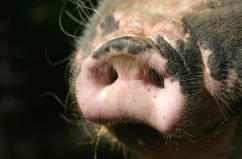
Spain has experienced a 50% rise in export volumes of pork to the UK, according to the levy board. Belgium and Denmark are also key suppliers of the meat, with both countries seeing a 14% rise.
Imports and exports remain a key area for progression, but pig slaughterings in the EU aren’t experiencing the same growth.
Although a rise in slaughterings is expected to continue until at least the middle of next year, they have slowed compared to the first half of 2015, according to AHDB Pork.
This conclusion is constructed around an analysis of figures presented by the European Commission’s pigmeat forecast working group. A report from the levy board highlighted that: “Pig slaughterings are forecast to rise by around 2% year on year in the second half of 2015, with growth slowing to around 1% in the first half of 2016.”
Furthermore, it said that many member states are predicting that pig levels will remain similar to year earlier levels. The strong growth by Spanish output is set to outweigh this stability, though this may also begin to relax by the second quarter of next year.
A survey that questioned 115 consumers found Pink Lady was the favoured snack, beating crisps, chocolate and celery
Branded apple Pink Lady has beaten off competition from celery, carrots and milk chocolate to become the nation’s top snack, according to a new consumer survey.
Conducted by Pink Lady brand manager Coregeo, the survey asked 115 consumers to rate snacks for taste, satisfaction, emotion and sensory attributes by either choosing a number on a nine-point scale, or selecting from a list of words that best described their reaction. This was dubbed the ‘Scale of Snackisfaction’ and analysed for qualitative consumer feedback on the different snacking options.
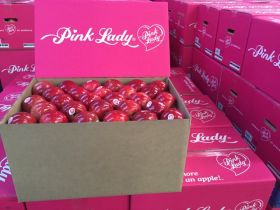
Pink Lady was rated top among consumers, followed by carrots and celery. Other snacks tested were milk chocolate, a shortbread finger, unsalted mixed nuts and crinkle cut ready salted crisps.
The survey forms part of the wider ‘Snackisfaction’ campaign, run by marketing agency MCG on behalf of Coregeo, which aims to position Pink Lady as the snack of choice. It was launched in April following a study from Leatherhead Food Research that demonstrated how subjective emotions such as guilt or excitement can influence the satisfaction rating of a sensory experience.
Other activity has included a ‘Tweet to eat’ roadshow and experiential marketing concept, where consumers could tweet the hashtag #snackisfaction to receive a Pink Lady by post.
During the campaign, 80,000 Pink Lady apples were distributed, coverage generated over 345,500 engagement opportunities on social media and Twitter activity rose by 11 per cent, Coregeo said.
Along with continuous investment in quality control and standards, this targeted consumer marketing has led to Pink Lady seeing a nine per cent year to date growth.
Michelle Toft, Coregeo chief marketing officer, said: “It’s no surprise to us that the Snackisfaction campaign was a huge hit with consumers because Pink Lady is fast becoming the fresh-fruit snacking favourite for the growing number of consumers who recognise its uniquely satisfying combination of taste, texture and refreshing nutritional qualities.
“In fact Pink Lady excelled in terms of tastiness and appearance and overall was more snackisfying than other types of snacks, showing that it’s a serious contender as a satisfying snack.”
Tesco is set to sell off more than a dozen sites in a £250 million deal.
Around 10,000 homes could be built on the sites in London, the South East and Bath as a result, it is believed.
The sites are part of nearly 50 projects which Tesco said earlier this year it was abandoning, many of which are now derelict.
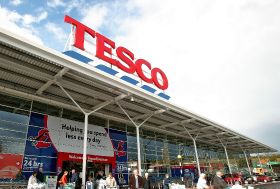
Tesco is selling the sites to Meyer Bergman, a property investment firm. The retailer stated in January that it was shelving plans to open 49 large supermarkets, some of which had already been built, as well as closing 43 unprofitable stores.
Tesco CEO, Dave Lewis, said: “Since announcing our decision to build fewer stores we have been working with Meyer Bergman to bring forward investment on our Spenhill sites. We are very pleased to have agreed a deal with Meyer Bergman that will bring forward significant investment for these local communities, including opportunities for residential development.
“We will be working with Meyer Bergman and local councils in the coming weeks to complete a formal handover, and look forward to the delivery of investment on these sites.”
Markus Meijer, CEO at Meyer Bergman, said: ”We see this investment as an opportunity to give new impetus to the Spenhill projects, to make Tesco’s place-making ambitions for the sites happen and to make an enduring contribution to local communities. ”
BBC News reports that the development sites being sold by Tesco include:
– Fulham High Street
– Highams Park (next to existing Tesco store)
– Hounslow (Hounslow bus garage)
– Lewisham (next to existing Tesco store)
– New Barnet (East Barnet Road)
– St Albans (London Road)
– Tolworth (Former MOD site next to Tolworth Broadway and A3)
– Hillingdon Master Brewer Site (Hillingdon Circus)
– Woolwich Phase 3 and 4 (next to existing Extra store)
– Epsom (Upper High Street)
– Kensington (next to existing Cromwell Road store)
A petition aiming for 100,000 signatures is calling for a greater blanket ban of neonics, while a bee species returns to Lincolnshire
Almost 90,000 people have signed a petition calling for the government to clamp down on the neonicotinoid ban following a ruling that allowed four counties to use limited amounts of the pesticide.
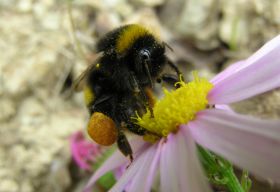
The petition, which wants a complete ban on neonics pesticides to be maintained and enforced by government, will be considered for parliamentary debate if it reaches 100,000 signatures by the closing date which is the end of January 2016.
Three neonics were banned for two years for use on flowering crops in December 2013, following concerns over harmful effects on pollinators.
Farming bodies and other agriculture stakeholders disputed the decision, and this year Defra allowed four counties to use neonicotinoid-treated rape seed following lobbying from the NFU.
The petition is named ‘Don’t kill our bees! Immediately halt the use of neonicotinoids on crops’ and argues that neonics should be banned because they are harmful to pollinators.
The news comes as the Andrena Nitida bee species was spotted in Lincolnshire, after not being seen in the area since 1900.
It was found on a new Syngenta Operation Pollinator habitat area, created by Beeswax Farming, which is owned by hoover tycoon Sir James Dyson.
Bee entomology specialist Mike Edwards described the find as “very encouraging”. “It is very encouraging that habitat creation on farmland is helping some of these solitary bee species to recover in numbers, and to extend their range across the UK,” he said.
“Andrena nitida is one of the many solitary mining bee species that play such an important part in pollinating crops and wildflowers. They look very much like honeybees. However, their behaviour on flowers, and the fact they carry large amounts of dry pollen as they fly from flower to flower, makes them extremely efficient pollinators.”
The Jaffa Juniors tour, which launched in April 2015 in tandem with the Tesco Eat Happy scheme, has worked with 5,000 children
An initiative launched by citrus specialist Jaffa in conjunction with the Tesco Eat Happy Project is celebrating after reaching a rather significant milestone in its educational program.

The Jaffa Juniors tour, which launched in April 2015, has put its 5,000th child through the scheme as it undertook lessons at Grimsargh St Michael’s Church of England School in Preston, Lancashire.
Roy Van Grevenbroek, of Jaffa, said: “The Jaffa Juniors tour was launched because as a brand we recognise the importance of education to children of where their food comes from and how it is made..
“The tour was launched in conjunction with the Tesco Eat Happy project and is a great way of interacting with kids on a 1-2-1 and group basis and getting over the importance of fresh produce in our everyday diets.”
The lessons are aimed at Key Stage 1 and 2 children covering infant schools nationwide, and were developed in conjunction with education resource specialists TTS.
Van Grevenbroek added: “It is important that we educate from an early age to build the recognition through teens and into early adulthood.
“The tour has been successful in doing just that and is a testament to both the support given by the Tesco Eat Happy project and the schools themselves for being open to this outside interaction. As a brand we have made an ongoing commitment to the program which will extend into 2016 and beyond.”
The Jaffa brand was formed over 50 years ago in Israel. The brand is imported by Israeli grower/exporter Mehadrin, and distributed to Tesco stores in the UK via AMT.